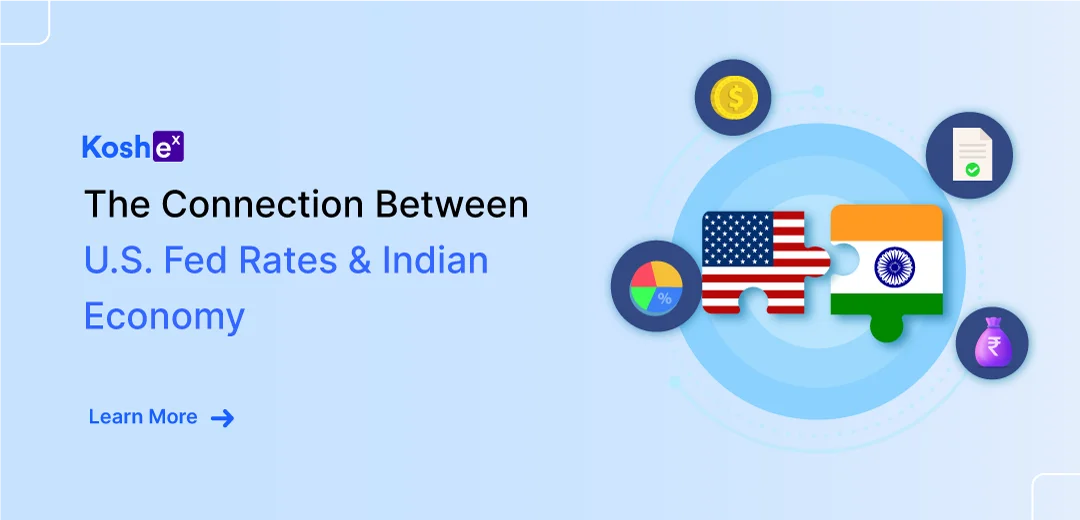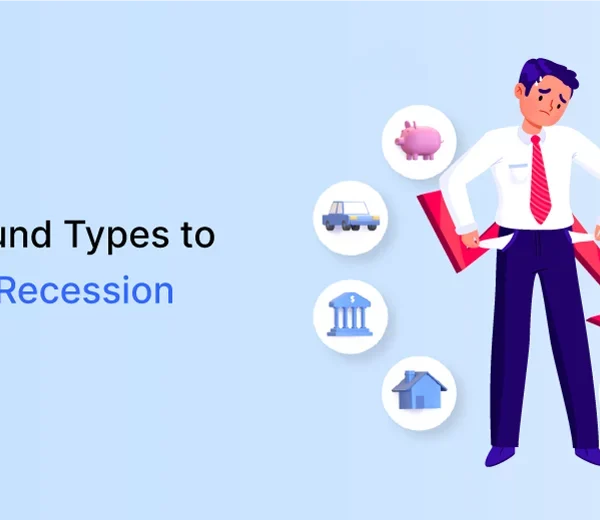Recently, the Reserve Bank of India took a pause from hiking interest rates. Now, all eyes are on the U.S. Federal Reserve. Since the rate hikes by the Fed impact the Indian economy and stock market, everyone is eagerly anticipating the U.S. Central Bank’s next move.
Will There Be A Rate Hike?
In March 2023, the U.S. Federal Reserve raised rates by 25 basis points (bps), expressing caution about the recent banking crisis and indicating that hikes are nearing an end. Investors were breathing a sigh of relief, thinking that the Fed will not be raising interest rates anymore. However, on April 20, 2023, economists in a Reuters poll said that the Fed will deliver a final 25 bps rate hike in May and then hold rates steady for the rest of the year.
The Impact Of Doubts Around Pause In Rate Hikes
Until a few days back, people were confident that the Fed will be taking a pause in its rate hike journey. But now, there have been doubts cast on this and many believe that there may be a rate hike on the way.
The price of oil declined around 2%, touching a two-week low on April 19 in spite of a sharp plunge in U.S. crude inventories. Oil prices fell after the dollar strengthened on fears that looming Fed interest rate hikes could limit energy demand in the world’s top consumer. On the same day, gold prices plunged below the key $2,000 level due to U.S. yields rising, as investors turned skeptical about potential U.S. rate cuts later this year.
Rate Hike, Indian Market & Economy
Just the speculation of rate hikes by the Fed has led to the price of oil and gold declining. It is common knowledge that if the U.S. sneezes, everyone catches a cold. So, the rate hikes will have an impact on the Indian economy as well.
If the Fed raises rates, the difference between interest rates in the U.S. and India reduces, which affects the currency trade negatively. The dollar and the U.S. treasury yield become attractive in the U.S. and the Indian market will begin to see capital outflow. So, what does this mean? Foreign investors invest in India because our interest rates are higher than in the U.S. However, when the U.S. raises rates, foreign investors would move their money to the U.S. because they would make more returns.
When foreign investors withdraw money from the Indian market, it can lead to the depreciation of the rupee and prompt RBI to a rate hike in India. If the rupee declines considerably, the RBI may be forced to sell some dollars to boost the domestic currency. This will lead to the depletion of the Forex reserve.
Rate Hike & Different Industries
The industry that benefits from the rise in interest rates is the banking industry. When interest rates increase, banks will re-price their loan portfolio much quicker than their deposit rates, which will help them in raising their net interest margin. On the other hand, higher interest rates are negative for the real estate sector as the EMIs of the prospective buyer increase, which will reduce demand.
IT and the pharma sector also benefit from the rate hikes because of the depreciation in the rupee. Nevertheless, if the rates go up too significantly, it leads to a slowdown and a recession in the U.S., negatively affecting the businesses there. Hence, U.S. companies’ appetite for technology spending may get restricted, which can negatively impact the earnings of IT services companies in India.
What Should Retail Investors Do?
A rate hike is anticipated and the market might have already discounted it. However, investors should keep an eye on how the Fed is planning to set the tone for the rest of the year, in terms of rate hikes.
Economists have been warning that the U.S. may see a recession in 2023 and in order to control inflation, the Fed may continue to raise rates. The jump in rates might keep the market volatile. So, retail investors can invest their money in domestic-centric sectors as they are less likely to be affected by a recession in the U.S. You can consider adding quality stocks to stay invested for the long term and try adjusting your portfolio as per the market situation, experts told Livemint.
Final Thoughts…
A rate hike by the Federal Reserve may have cascading effects and lead to the RBI raising rates. We have written a blog about how the rate hike by the RBI can affect the common man in India. The Fed may raise rates to curb inflation and stop the recession before it even starts.
Many countries across the globe, including the U.S. and India, are still reeling from the effects of the pandemic, and central banks are doing their best to control inflation and help the economies recover. We have to wait and see whether the Fed raises rates in May and how it affects the Indian economy. However, we hope that there will be a pause in the future to give a breather to people from high EMIs.









Leave a Comment